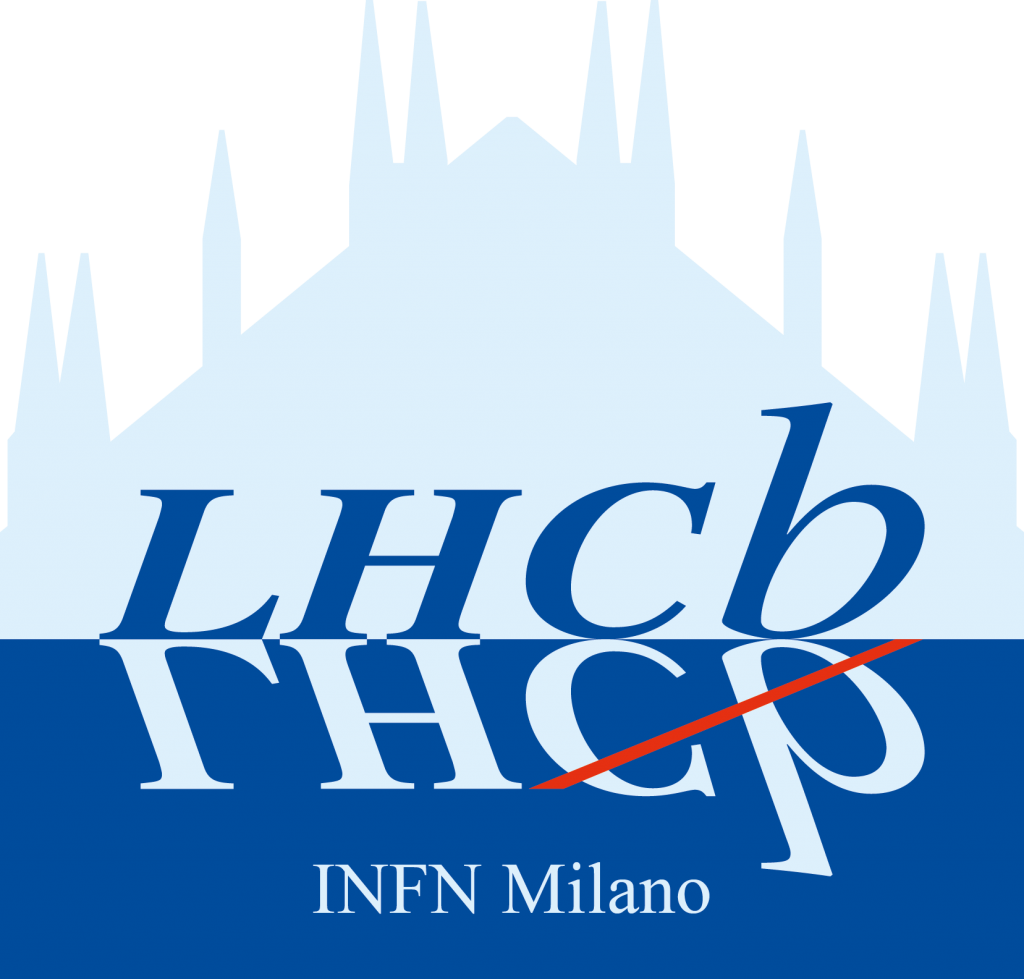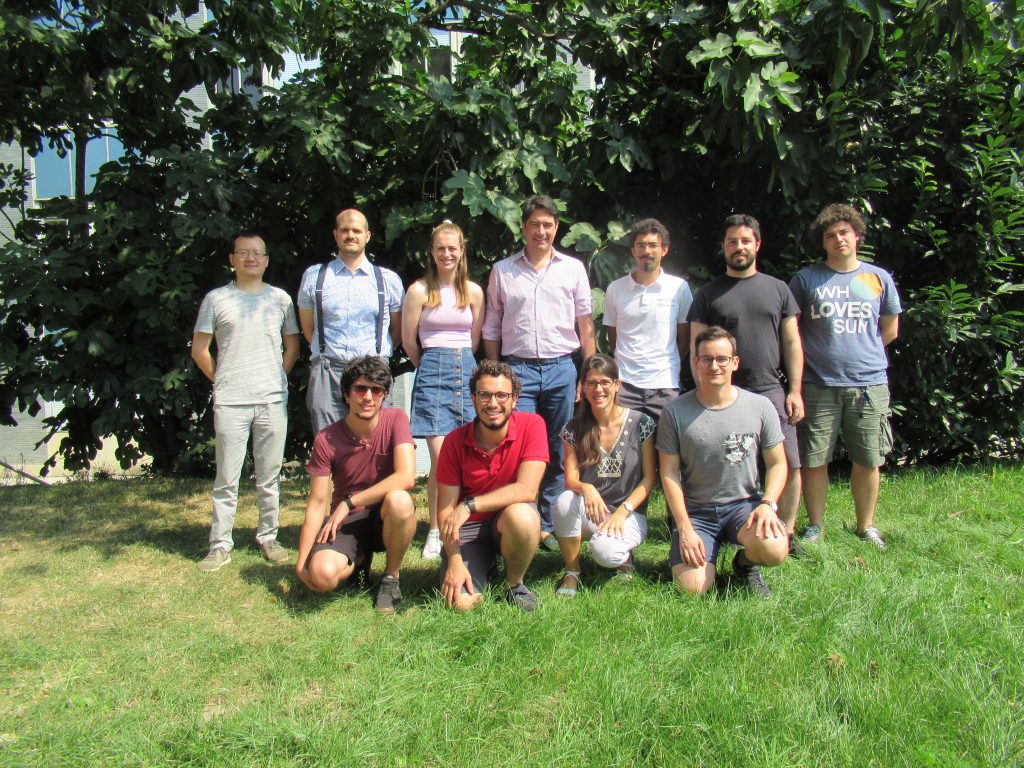
Associate professor of Physics at University of Milano and INFN researcher. After graduating at the University of Pisa under the supervision of Marcello Giorgi, he was PostDoc in Pisa and staff physicist at INFN Milano. He was visiting scientist at the SLAC National Accelerator Laboratory and Scientific Associate at CERN. He participated to the BaBar experiment and contributed directly to the measurements of charge and parity (CP) symmetry violation and flavour oscillations for B mesons, which confirmed the validity of the CKM mechanism (by the authors Cabibbo, Kobayashi and Maskawa) for the mixing of quarks and CP violation within the Standard Model, for which Kobayashi and Maskawa received the Nobel Prize in 2008. He was convener of the Charm Analysis Working Group of the BaBar experiment. He contributes to the development of new instrumentation, in particular silicon pixel detectors and tracking devices, currently within the Timespot project. Since 2013 he coordinates a group of research participating to the LHCb experiment at CERN, searching for new physics in beauty and charm hadron decays, and is deputy project leader of the Upstream Tracker, currently under construction. He is member of the editorial board of the Chinese Physics C.
Staff researcher at INFN – Milano. I am active on data analysis and my main interests are heavy baryon spectroscopy and CP violation in the b sector. I am a member of the LHCb collaboration and member of the Speakers’ bureau of the experiment.
I have also activities on hardware development and R&D of new silicon detector. In particular, the Milano group is responsible of designing, building and assembling the front end electronics and flex cables of the Upstream Tracker (UT) for the LHCb upgrade.
Postdoctoral researcher at the Department of Physics of Università degli Studi di Milano. He received his Ph.D. in Physics from Yale University (USA) in May 2019 with a thesis on charm jet reconstruction in proton-proton collisions with the ALICE experiment at the CERN LHC. As a member of the ALICE Collaboration (2011-2019) his main research focus was jets and heavy-flavour production in ultra-relativistic proton-proton and lead-lead collisions and their use as probes of the Quark-Gluon Plasma. He joined the LHCb collaboration and the SELDOM team in November 2018.
Andrea Merli is a Post-Doc at the Department of Physics of Università degli Studi di Milano. He graduated and took his PhD at the Università degli Studi di Milano. He spent some months as a Summer Student working in BaBar at the SLAC National Accelerator Laboratory measuring the spin parity of charm resonances. During the master thesis and PhD he joined the LHCb Collaboration at CERN searching for behaviour asymmetry of matter and antimatter in baryons. At CERN he contributed also to the UT detector installation. Now he is part of the SELDOM project to search for the elusive electric dipole moment of short lived baryons.
Researcher (term contract) at University of Milan. He received his Ph.D in Physics from Nanjing University (China) in 2013 with the BESIII experiment. He joined the LHCb collaboration as a postdoctoral researcher at INFN Sezione di Milano in 2013. His main research fields are CP violation searches in charm and beauty hadron decays, EDM/MDM searches on baryons and tau leptons, and exotic particles searches in B decays.
Postdoctoral researcher at University of Milan. As a Ph.D. student in Université Pierre et Marie Curie, Paris, I have been analysing the family of charmless b-decays known as “B to KShh” in order to eventually extract the weak phase beta in these decays. This body of analyses has already been able to perform the first single-experiment observation of direct CP violation in the B rightarrow K^*pi decays. I then joined the IFIC Valencia group, and dedicated myself to the amplitude analysis of the Lambda^0_c rightarrow pKpi decay, as well as a vast programme of analysis of Λ decays which is part of the SELDOM initiative.I joined the Milano group in October 2019, and since then I have been focusing on the amplitude analysis of prompt-produced Lambda^0_c rightarrow pKpi decays. I am currently co-convener of the working group “Production and decay properties” in the Charm group. Additionally, as responsible for the Seeding algorithm and co-convener of the “Simulation and reconstruction” group of the SciFi project, I have been working on the improvement and monitoring of that algorithm, essential for the LHCb operations during the upgrade.
PhD student at the Department of Physics of the University of Milan. She graduated at the same University in September 2017. During her master thesis she spent several months at CERN working for the LHCb experiment.
Her PhD project focus on the search for exotic particles in the B^0_{(s)} rightarrow J/Psi p bar{p} decays analysing the data collected by LHCb.
Electronic & System Designer at the National Institute for Nuclear Physics of Milan. He designed the front-end electronics boards for the LHCb Upstream Tracker and the flexible PCBs that compose the electronic system in the detection area. He also worked on highly integrated signal and power integrity testing instruments and microwave multiplexers for advanced TDR and VNA measurements. His main interests focus on embedded systems for research and development, medical and energy saving applications.
Daniele Marangotto is a postdoctoral researcher at the Department of Physics of the University of Milan. He got his Ph.D. in Physics from the University of Milan in March 2020 with a thesis on amplitude analysis and polarisation measurement of the Lc+ baryon in the pK-pi+ final state for the electromagnetic dipole moment determination.His main research topic is experimental flavour physics, particularly regarding amplitude analyses of baryon decays, polarisation measurements of charm baryons in proton-proton and proton-gas collisions, CP-symmetry violation searches. He also worked on phenomenological studies related to amplitude analyses and helicity formalism, and on simulation and experimental methods for electromagnetic dipole moment determination of short-lived particles, tau lepton polarisation measurement, semileptonic decay angular studies at hadronic colliders.He is member of the LHCb collaboration since 2014 and part of the SELDOM team since April 2018.
Electronic engineer working for INFN, Sezione di Milano. He finished his MSc degree at Politecnico di Milano (Italy). During his MSc thesis he worked on a telescopic detector system for INFN, developing both electronic and mechanical components. His main research focus are on the development and qualification of the electronic front-end for the LHCb Upstream Tracker project, the same electronics used on SELDOM project, and the development of a new telescope for the SELDOM project.
Sara Cesare is a PhD student at the University of Milano. She graduated at the University of Padova in September 2022 with a thesis on “Calorimetry for MUonE” on the development of the MUonE detector. Her research project focuses on the proof of principle for the SELDOM project for the measurement of short-lived particle dipole moments at LHC. In particular she is interested in hardware development and simulations.
Ziyi Wang is a Post-doc at the University of Milano. He received his Ph.D. in Particle Physics from the University of Chinese Academy of Sciences in 2023. During his PhD, he focused on charm physics in the BESIII experiment and joined the LHCb collaboration in 2021. His main research fields are CPV in charmed meson, search for exotic states like Zc(s) and Y, and EDM/MDM studies in the baryon sector.




